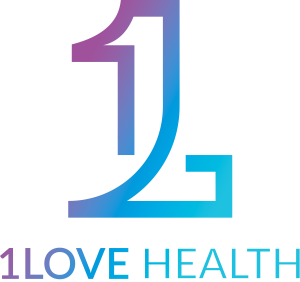8 Lazy Ways To Improve Heart Health
Key Takeaways:
-
Increase healthy food intake.
-
Increase daily movement.
-
Try intense cardio.
-
Looking into some of the benefits of frequent sauna use.
Improving heart health and function is truly much more simple than some make it out to be. You do not need to have a perfectly healthy diet, with a vigorous exercise routine in order to lower your risk of cardiovascular disease, reduce risk of heart attack and even decrease blood pressure. There are several simple and easy steps one can use to take immediate action on your heart health.
1. Foods - Inclusion Before Restriction

Having a very restrictive diet could be hard to follow. Simply increasing the amount of high quality foods in your diet, will make you crave the unhealthy options less. Here are 4 food options to include into your diet:
-
Fish
Eating two servings of fish per week could dramatically reduce your risk of heart disease. Fish varieties such as salmon, are rich is unsaturated fats and contain large amounts of omega-3 fatty acids. These are great for lowering risk of cardiovascular disease and improving cholesterol.
-
Healthy nuts
Frequent consumption of health nuts such as almonds or cashews can lower levels of inflammation, which can reduce the risk of heart disease, diabetes and high blood pressure. Daily recommended intake of nuts is roughly one ounce per day.
-
Whole Foods
Whole foods are a great way to increase overall health and reduce intake of unhealthy foods. Whole foods are generally nutrient-dense and satiating, meaning you'll have reduced cravings of unhealthy foods that could increase heart related risk factors.
-
Fruit and Veggies
Fruits and veggies are also heavily nutrient-dense and can help contribute to a well regulated blood pressure, healthy weight and reduce other risk factors for poor health. The CDC recommends at minimum 2 cups of fruit per day and 2 to 3 cups of vegetables per day.
2. Get Moving

Increasing daily activity level is truly not as difficult as it may seem. Simply improving step count can have a huge impact on body mass index, stress management, heart disease risk and even could lower blood pressure. Start with a simple 10 minute walk per day when your feeling stressed or in a rut. Some other ways of improving daily movement are:
-
Increase total standing time
-
Take a quick walk after meals
-
Park further away from stores
-
Take your dog for a walk
-
Start a gym routine
3. Ease Into The Gym

Getting into a gym routine may be daunting, it is important to start quick and simple. A weights routine can help increase bone density, increase dopamine, blood flow throughout the body and help with overall disease control. Starting with a simple 20 minute, full body workout routine, 2 to 3 times per week is a great way to start.
4. Avoid Drinking Calories

Not only are sugary drinks such as soda or concentrated fruit juices bad for your overall health, they're also high calorie dense and easy to overconsume. Drinking these too often could contribute to unhealthy weight gain which is certainly a major risk factor to heart disease. Here are some drinks you should limit:
-
Soda
-
Processed Fruit Juice
-
Highly Sweetened Coffee
-
Sweet Tea
5. Intense Cardio

-
HIIT or vigorous cardio
-
70-85% of your max heart rate
-
75 minutes per week
Intense cardio is certainly an activity that is difficult to implement into a routine. This is generally cardio performance at 70-85% of your max heart rate for short periods of time. While this activity is quite difficult the body can benefit from it immensely. This type of activity can dramatically reduce stress and take your mind off of things which can contribute to lowering high blood pressure. Additionally, this type of exercise truly taxes your cardiovascular system and gives it the exercise that it needs in order to increase VO2 max and overall cardiovascular function.
6. Limit Alcohol Consumption

Heavy alcohol consumption has been linked to many cardiovascular diseases such as hypertension, coronary artery disease, stroke and peripheral arterial disease. Alcohol consumption as a whole is actually quite complex. The science points toward heavy alcohol consumption being extremely detrimental to your health, but a small intake being healthier than zero consumption for some groups. General health guidance for alcohol consumption is limiting to 1-2 drinks per day. Heavy drinking is defined to be 4-5 standard sized drinks per day.
7. Maintain a Healthy Body Weight
Healthy Body Fat Levels
Maintaining a healthy body weight will be different for many people. Some people naturally carry more body fat than others, while still being able to maintain optimal health. Body mass index is generally a poor marker to gauge your optimal weight as it does not factor in body fat or muscle mass levels. A body fat level of above 25% for men is considered to be obese and unhealthy, whereas above 30% body fat for women is deemed unhealthy and obese. These high levels of body fat are linked to issues such as high blood pressure and cholesterol, coronary heart disease and many more.
Healthy Muscle Mass Levels
A common misconception about body weight is that more muscle is always better. For some people that can easily build a substantial amount of muscle, they may maintain quite a high body weight, without a high bodyfat. This can still be unhealthy as it makes the cardiovascular system work harder than it normally would. High amounts of muscle mass require extra blood flow from the heart in order to maintain it, this could lead to issues with high blood pressure.
Blood Panels Tell The Story
If you're unsure about how your current weight factors into your health, a full hormonal and health blood panel may give you some incite into how your body is reacting to your current size. Weather you're quite muscular, or carry a high amount of bodyfat, getting blood work done by your physician is always recommended at least once per year for peace of mind.
8. Sweat It Out

Sauna bathing or sauna sessions actually have a dramatic effect on cardiovascular health. Sauna use increases blood flow throughout the entire body, increasing blood output to the heart and blood vessels. This increased circulation can give you similar benefits to an aerobic workout, with elevated heart rate and blood flow. Sauna bathing is an extremely easy way to lower your risk of cardiovascular disease as in some saunas you can simply lay down and relax for 20 minutes and potentially lower your risk of cardiovascular disease by 70% and all cause mortality by even 40%!
Optimal Weekly Sauna Time
To achieve optimal health benefits from sauna use, the science generally points toward a minimum of 58 minutes of sauna per week, broken up into 2-3 sessions. The amazing part about sauna bathing is that as you increase usage, while maintaining hydration, the magnitude of health benefits increase.
Reeling It All In
The moral of the story is that there are many small ways you can improve heart health and decrease early mortality risk. Simply adding in some healthy food options, increasing movement habits, implementing a weights routine or avoiding harmful consumption of alcohol or sugary drinks can make a dramatic difference in your life and risk of cardiovascular disease. Healthy happens are difficult to build, it is important to start out slow and improve from there, the best options for you are the ones you can stick to.


